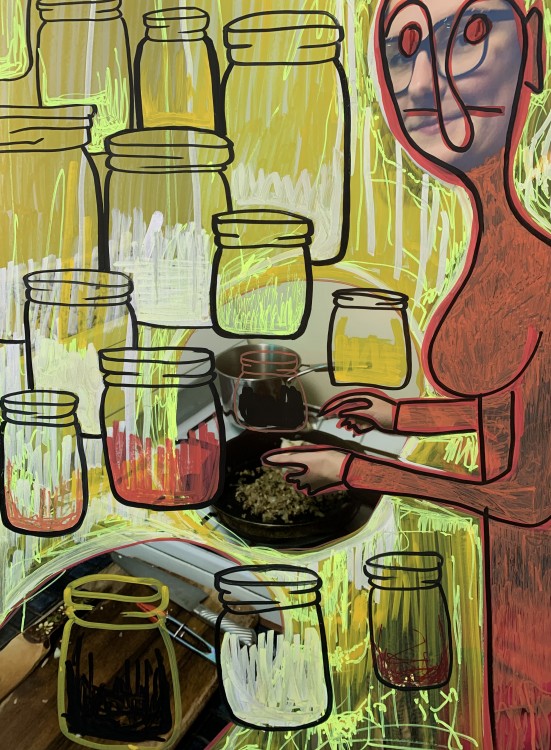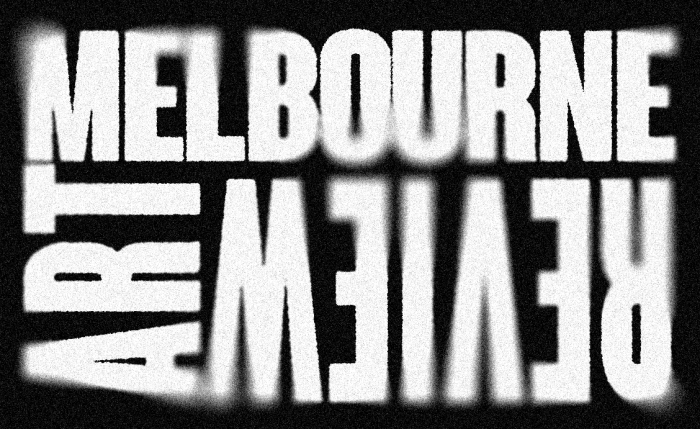Share this:
Interview Series 2020: Elizaveta Maltseva
22 June 2020 Comment
Melbourne Art Review:
Thanks for chatting with us Elizaveta. Can you tell us a bit about your work?
Elizaveta Maltseva:
I kind of hate that I’m not more articulate when it comes to talking about my work. After 10 years, you’d think I’d a set of default answers and polished quotes, but I don’t. Maybe that’s better, because it indicates that I have an on going relationship with my practice and there is still so much to explore and learn.
I work across a few mediums, including printmaking, mixed medium, video, installation and curation. It was a really great day when I granted myself permission to include my curatorial work as part of my artistic practice and not some segregated activity.
MAR:
What comes first for you, the idea for a project or individual works or experiments that suggest a concept?
EM:
I think that probably it’s the ideas but they take a really long time to resolve. The pattern I can kind of pull from my years of practice is that I will have an idea, and like a little seed, it might take years to grow and bloom. Quite often it is through playing in the studio or working on another project that the original resolution to the idea with pop into my mind.
Its very rare for me to sit down and come up with an idea, make the work and be happy with it. There are normally years between the start and end point. If there is ever an end.
MAR:
What are the key elements that must be present for you when creating a body of work?
EM:
Time and space.
Time - to process the work and not be pressured by a deadline to resolve it.
Space - I need both physical and mental space to work.
I remember going through a period in my life when I had a lot of frustration going on and I wasn’t making any work. At the time, I has someone ask me why I don’t pour my frustration into my practice and its because I’m not that kind of artist.
MAR:
Do you have what you might call an “artistic style”?
EM:
I really have to hold back on making any self deprecating jokes here.
If I was to really try to focus in on a style, I can’t seem to go past Low-Fi. But that’s how I see my work. Im not very delicate or patient, and really like getting my hands involved in any medium I can get them on. I also love the “mistake” and “accidents”.
MAR:
Do you have a career highlight?
EM:
I would definitely say my international curatorial project, Return Flight! It was a three-year project allow me to work with 60 international artists and writers by commissioning new works, publishing them in a book series and exhibiting the project in Melbourne, Edinburgh, Christchurch and Hong Kong.
MAR:
Is the idea of a body of work important to you? How does it function in relation to making a great individual artwork?
EM:
Its not really. I like the idea of working on a concept across a number works but I also love the pieces that I’ve made that stand alone. They seem kind of more honest, raw and intentional sometimes. I think lots of artists have those “lone works” and it might be cool to start exhibiting them as shows.
MAR:
Do you associate your work with a particular genre? And if so, how would you define that genre?
EM:
The day I walked into my first day of art school I knew for sure that I was a photographer and I picked a huge fight with faculty for making me take other classes… now I can definitely tell you that I’m not a photographer.
MAR:
What professional or creative advice would you give to your past self?
EM:
This year I celebrate my first 10 years of professionally exhibiting and if I could go back to my first opening night and give myself some advice it would be “you’re doing just fine kid. This game is a marathon and not a sprint.”
MAR:
Do you have a favourite space in Melbourne?
EM:
Lane’s Edge - its a sweet little dive bar in the city with a cozy beer garden.
MAR:
What’s the most difficult thing about being an artist or creative in Melbourne and trying to produce and exhibit work? And how do you overcome those challenges?
EM:
Other people! Ha. There are so many talented artists and creatives in this city and that makes the fight for exhibiting all the more competitive. But at the same time, these same people are the ones who inspire me to produce more work. So it’s the problem and the solution in one.
You can find Elizaveta online here.





